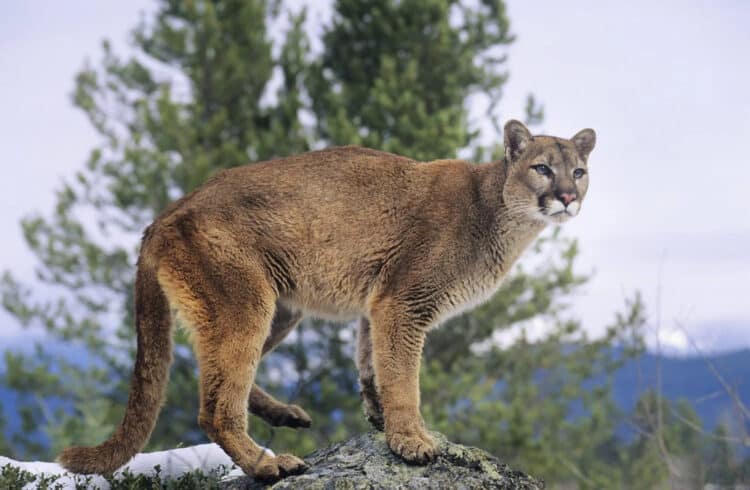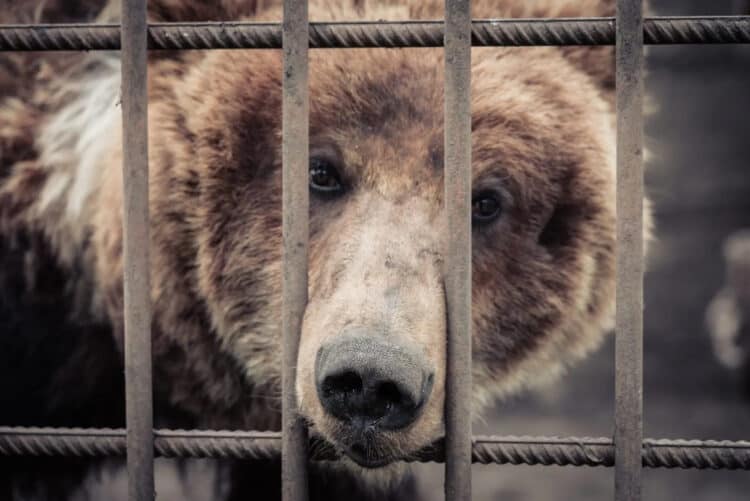Twenty-seven states (at last count) now have “right to hunt and fish” constitutional amendments. These laws are an attempt to secure public hunting, trapping, and fishing rights in perpetuity. They also help secure the future of traditional state wildlife governance & management that caters almost exclusively to people who engage in hunting, trapping, and fishing activities.
Utah’s Right to Hunt and Fish Act (RHF) was passed in 2020. Three years later, in 2023, the rural Republican dominated Utah legislature passed HB469 (469), a 26-page bill innocuously titled “Wildlife Related Amendments” into which the sponsors inserted the following on the next to last day of the session when no one was paying attention:
“A resident, after paying the fee established by the Wildlife Board, may obtain, as
provided by the Wildlife Board’s rules, a combination license to: hunt or trap cougar during a period beginning on January 1 and ending on December 31…”
This permits hunting and trapping of cougars year-round in Utah with no restriction on take. Incidentally, I was recently informed that one man killed seven cougars in 2023. The Utah cougar population had already been heavily exploited and the population is significantly skewed toward younger age animals.
Shortly after 469 became law, Western Wildlife Conservancy and the Mountain Lion Foundation began talking with Jessica Blome at Greenfire Law in Berkeley about filing a lawsuit against Utah. The suit was filed on October 18. Our argument, in brief, is that 469 contradicts the RHF. Utah’s law is unique among all others by including (2)(a-c) below:
- The individual right of the people to hunt and to fish is a valued part of the State’s heritage and shall be forever preserved for the public good.
- The right under Subsection (1) includes the right to use traditional methods to hunt and to fish, subject only to statute, and rules and regulations adopted as provided by statute, to:
- promote wildlife conservation and management;
- provide reasonable regulation of hunting and fishing activities; and
- preserve the future of hunting and fishing.
The most obvious point of conflict is that the RHF requires management that promotes conservation of wildlife whereas 469 fails to do so. This is a positive duty and is separate from the requirement that statutes promote management of wildlife. What counts as management of wildlife is anything that state wildlife management agencies do that affects wildlife; but conservation of wildlife is another matter. How does 469 promote conservation of wildlife? Obviously, it does not promote conservation of cougars and there is no solid science to support a claim that it promotes conservation of mule deer—quite the contrary.
The State of Utah filed a Motion to Dismiss our lawsuit in December 2023 on the ground that the legality of 469 is a political question, not a constitutional one. We plaintiffs then filed an answer, to which the State replied, doubling down on its “political question” argument and also arguing that we plaintiffs lack standing because our right to hunt and fish is not violated by 469.
Some weeks later, the judge assigned to the case ruled in favor of the State’s Motion to Dismiss. On March 4, we, the plaintiffs appealed that decision. The proceedings are likely to continue through 2024.
Like most other Rocky Mountain states, particularly Idaho, Montana, and Wyoming, Utah is very hostile to all native predators. This lawsuit is our opportunity to push back. Also, two of the top mountain lion researchers have volunteered to serve as expert witnesses if it comes to that. However, despite Greenfire Law doing all it can to make the litigation affordable, it is still expensive. If anyone would like to help support this effort, I urge you to visit westernwildlifeconservancy.org and mountainlion.org to make a contribution.
This article by Jonathan Ratner was first published by The Wildlife News on 16 April 2024. Lead Image: 2011 Francisco Kjolseth.
What you can do
Help to save wildlife by donating as little as $1 – It only takes a minute.







Leave a Reply